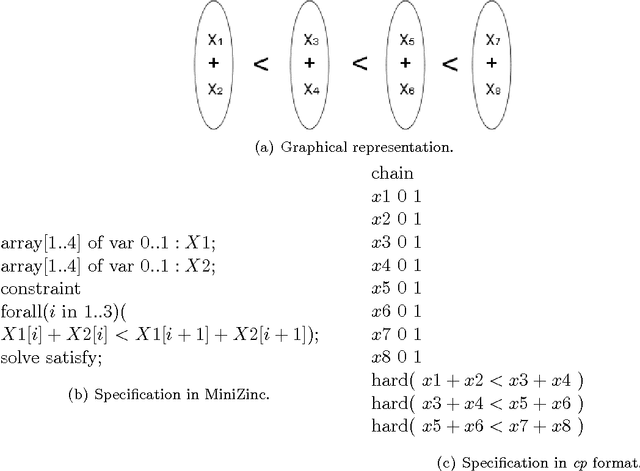Local Consistency and SAT-Solvers
Paper and Code
Jan 18, 2014



Local consistency techniques such as k-consistency are a key component of specialised solvers for constraint satisfaction problems. In this paper we show that the power of using k-consistency techniques on a constraint satisfaction problem is precisely captured by using a particular inference rule, which we call negative-hyper-resolution, on the standard direct encoding of the problem into Boolean clauses. We also show that current clause-learning SAT-solvers will discover in expected polynomial time any inconsistency that can be deduced from a given set of clauses using negative-hyper-resolvents of a fixed size. We combine these two results to show that, without being explicitly designed to do so, current clause-learning SAT-solvers efficiently simulate k-consistency techniques, for all fixed values of k. We then give some experimental results to show that this feature allows clause-learning SAT-solvers to efficiently solve certain families of constraint problems which are challenging for conventional constraint-programming solvers.
 Add to Chrome
Add to Chrome Add to Firefox
Add to Firefox Add to Edge
Add to Edge